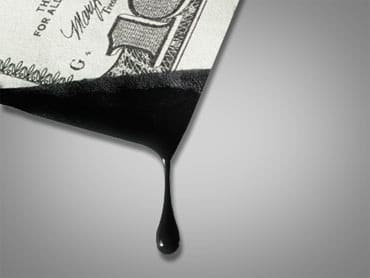When an oil company’s negligence leads to an oil spill, the financial costs incurred by the company can be crippling. They have to pay clean up costs, federal fines, and, in many cases, settlements to victims who have been affected by the spill. Since these costs can be such a burden to the multi-billion dollar industry, they’ve figured out a way to recoup some of their losses by deceiving all the players involved.
Of course, these aren’t the massive oil spills that we’ve seen from Exxon and BP
The scheme is known as “double dipping,” and it involves oil companies receiving both insurance funds for spill cleanup along with state funds to clean up oil leaks from underground tankers. This allows the company to use funds for cleanup, and usually have a little left over to put in their pockets. A new report by Reuters succinctly captures the essence of what’s happening in a single quote: “When I first saw these cases, I thought this is kind of incredible,” said New Mexico assistant attorney general Seth Cohen, who handled the lawsuit for the state. “The oil companies have, in effect, profited off polluting.” The Reuters investigation followed the story of two environmental crusaders, Thomas Schruben and Dennis Pantazis, who are working to hold the oil industry accountable for profiting off of their own environmental destruction. The two men have assembled teams of attorneys and investigators to look into the “double dipping” schemes and are reporting their findings to state governments. The leaking tanks, which are at the center of the “double dipping” schemes, have been flagged by the E.P.A. in the past for being outdated, rusty, and corroded, which is causing leaks of both crude oil and diesel fuel into underground aquifers. When the company begins cleaning up these messes, they are covered by their own insurers who repay at least a portion of the company’s costs. On the other side, most states have cleanup funds set aside that will pay the company’s costs to cleanup. By withholding their previous payments, companies are able to accept both sets of funds. But thanks to the work of people like Pantazis and Schruben, these double-dipping energy giants have found themselves having to spend that oil spill money on expensive defensive attorneys to fight off the fraud lawsuits that are coming from every direction. The lawsuits are from the civil, not criminal, angle, which makes recovery of funds much more likely. One particular case that could have industry-wide ramifications involves BP taking an alleged $25 million in state funds after they had already received money from their insurers to clean up a tank spill in Minnesota. The suit is being brought under the state’s False Claims Act, which allows whistleblowers a portion of the settlement. The only way to stop industry fraud is to find it, and the discovery appears to be picking up steam. Unless they get caught in the act, these greedy energy giants will continue to cheat the system to line their pockets at the expense of the health and safety of the populace.
Subscribe to our newsletter
Stay up to date with DeSmog news and alerts






